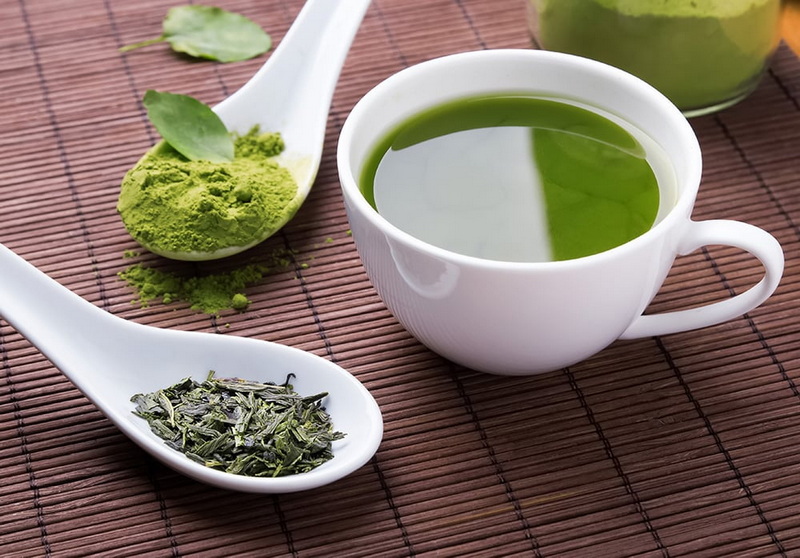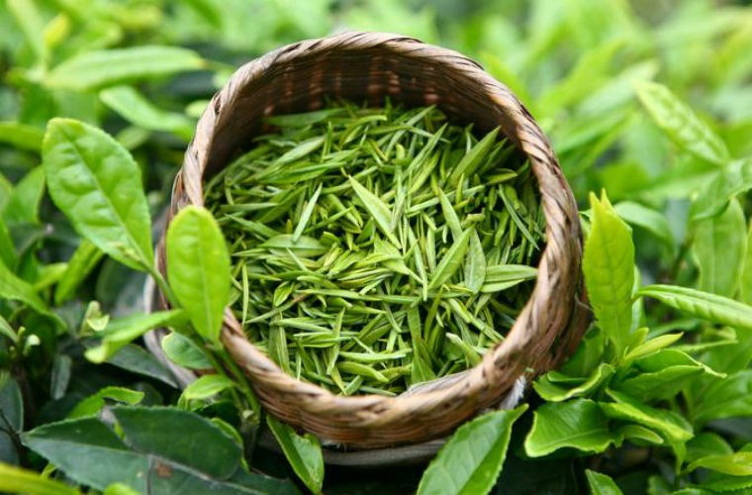Content Menu
● The Basics of Green Tea
● Understanding Green Tea Extract
● Key Differences Between Green Tea and Green Tea Extract
>> 1. Concentration
>> 2. Convenience
>> 3. Caffeine Content
>> 4. Absorption
● Health Benefits of Green Tea and Green Tea Extract
>> Weight Management
>> Heart Health
>> Brain Function
>> Cancer Prevention
● Potential Side Effects and Precautions
>> Green Tea:
>> Green Tea Extract:
● How to Choose Between Green Tea and Green Tea Extract
>> Choose Green Tea If:
>> Choose Green Tea Extract If:
● How to Use Green Tea and Green Tea Extract
>> Brewing Green Tea:
>> Taking Green Tea Extract:
● Conclusion
● FAQ
>> 1. Is green tea extract stronger than regular green tea?
>> 2. Can I take green tea extract instead of drinking green tea?
>> 3. Are there any risks associated with taking green tea extract?
>> 4. How much green tea extract should I take daily?
>> 5. Can green tea or green tea extract help with weight loss?
● Citations:
Green tea has been a popular beverage for centuries, renowned for its numerous health benefits. In recent years, green tea extract has emerged as a concentrated form of this healthful drink, available in supplement form. But what exactly is the difference between green tea extract and traditional green tea? This article will explore the distinctions, benefits, and potential drawbacks of both forms, helping you make an informed decision about which option might be best for your health goals.

The Basics of Green Tea
Green tea is made from the leaves of the Camellia sinensis plant, which undergoes minimal processing to preserve its natural compounds. The leaves are typically withered, steamed, and dried, resulting in a beverage rich in antioxidants, particularly catechins[1].
Green tea is known for its light, refreshing taste and pale green color. It contains various beneficial compounds, including:
- Catechins (particularly epigallocatechin gallate or EGCG)
- Polyphenols
- Flavonoids
- Caffeine
- L-theanine
These components contribute to green tea's potential health benefits, which include improved brain function, fat loss, and a lower risk of certain types of cancer[1].
Understanding Green Tea Extract
Green tea extract is a concentrated form of green tea, typically available as a dietary supplement in capsule or liquid form. The extract is made by isolating and concentrating the most beneficial compounds found in green tea leaves, particularly catechins and EGCG[2].
The main advantage of green tea extract is its potency. A single capsule can contain the equivalent of several cups of green tea, making it a convenient way to obtain a high dose of green tea's beneficial compounds[2].
Key Differences Between Green Tea and Green Tea Extract
While both green tea and its extract come from the same source, there are several important differences to consider:
1. Concentration
The most significant difference is the concentration of active compounds. Green tea extract is much more concentrated than brewed green tea. For example, a typical cup of green tea contains about 50-100 mg of polyphenols, while a green tea extract capsule can contain 500 mg or more[3].
2. Convenience
Green tea extract offers greater convenience, as it can be taken quickly in capsule form without the need for brewing. This makes it easier to incorporate into a busy lifestyle or for those who don't enjoy the taste of green tea[3].
3. Caffeine Content
While green tea naturally contains caffeine, many green tea extract supplements are decaffeinated. This can be beneficial for those sensitive to caffeine or looking to avoid its stimulant effects[3].
4. Absorption
The body may absorb the compounds in green tea extract differently compared to those in brewed green tea. Some studies suggest that the bioavailability of catechins may be higher in extract form[3].

Health Benefits of Green Tea and Green Tea Extract
Both green tea and its extract offer numerous potential health benefits, largely due to their high antioxidant content. Here are some of the key benefits:
Weight Management
Green tea and its extract may aid in weight loss by boosting metabolism and increasing fat burning. A meta-analysis of 11 studies found that green tea extract led to a small but significant reduction in body weight and waist circumference[4].
Heart Health
Regular consumption of green tea or its extract may help lower the risk of cardiovascular disease. The antioxidants in green tea can help reduce inflammation, lower bad cholesterol levels, and improve the function of blood vessels[4].
Brain Function
The combination of caffeine and L-theanine in green tea can improve brain function, including attention, memory, and reaction time. Green tea extract has shown potential in protecting against age-related cognitive decline and neurodegenerative diseases like Alzheimer's[4].
Cancer Prevention
While more research is needed, some studies suggest that the high levels of antioxidants in green tea and its extract may help protect against certain types of cancer[4].
Potential Side Effects and Precautions
While generally safe for most people, both green tea and green tea extract can cause side effects in some individuals, especially when consumed in large amounts:
Green Tea:
- Caffeine-related side effects (insomnia, nervousness, increased heart rate)
- Interference with iron absorption
- Potential interactions with certain medications
Green Tea Extract:
- Liver problems (rare but serious)
- Caffeine-related side effects (if not decaffeinated)
- Potential interactions with medications
- Upset stomach when taken on an empty stomach
It's important to consult with a healthcare provider before starting any new supplement regimen, especially if you have pre-existing health conditions or are taking medications[5].
How to Choose Between Green Tea and Green Tea Extract
Deciding between green tea and its extract depends on your personal preferences and health goals:
Choose Green Tea If:
- You enjoy the ritual of drinking tea
- You prefer a more natural, whole-food approach
- You want to benefit from the hydration that comes with drinking tea
- You're sensitive to concentrated supplements
Choose Green Tea Extract If:
- You want a higher dose of catechins and other beneficial compounds
- You don't enjoy the taste of green tea
- You need a more convenient option
- You're looking for a caffeine-free alternative (if choosing a decaffeinated extract)
How to Use Green Tea and Green Tea Extract
Brewing Green Tea:
1. Heat water to about 160-180°F (70-80°C)
2. Steep 1 teaspoon of green tea leaves in 8 ounces of water for 2-3 minutes
3. Strain and enjoy
For optimal health benefits, aim for 3-5 cups of green tea per day[1].
Taking Green Tea Extract:
Follow the dosage instructions on the product label. Typical doses range from 250-500 mg per day. It's best to take green tea extract with meals to increase absorption and reduce the risk of upset stomach[5].
Conclusion
Both green tea and green tea extract offer significant health benefits due to their high antioxidant content. While traditional green tea provides a more holistic approach with the added benefits of hydration and the tea-drinking experience, green tea extract offers a convenient, concentrated dose of beneficial compounds. The choice between the two ultimately depends on individual preferences, lifestyle, and health goals. As with any dietary change or supplement regimen, it's wise to consult with a healthcare professional to determine the best option for your specific needs.
FAQ
1. Is green tea extract stronger than regular green tea?
Yes, green tea extract is typically much stronger than regular green tea. A single capsule of green tea extract can contain the equivalent of several cups of brewed green tea in terms of beneficial compounds like catechins and EGCG.
2. Can I take green tea extract instead of drinking green tea?
While green tea extract can provide similar benefits to drinking green tea, it's not an exact replacement. Green tea as a beverage offers additional benefits such as hydration and a more balanced intake of compounds. However, if you don't enjoy drinking tea or need a more concentrated dose of its beneficial compounds, green tea extract can be a good alternative.
3. Are there any risks associated with taking green tea extract?
While generally safe for most people, green tea extract can cause side effects in some individuals, particularly when taken in high doses. These can include liver problems (rare but serious), caffeine-related side effects (if not decaffeinated), and potential interactions with certain medications. It's important to consult with a healthcare provider before starting any new supplement regimen.
4. How much green tea extract should I take daily?
The appropriate dosage can vary depending on the specific product and your individual health needs. Typical doses range from 250-500 mg per day. Always follow the dosage instructions on the product label and consult with a healthcare provider for personalized advice.
5. Can green tea or green tea extract help with weight loss?
Both green tea and green tea extract may aid in weight loss by boosting metabolism and increasing fat burning. However, they are not magic solutions and should be used as part of a balanced diet and regular exercise routine for the best results.
Citations:
[1] https://staarlabs.com/blogs/news/green-tea-vs-green-tea-extract
[2] https://www.urmc.rochester.edu/encyclopedia/content?contenttypeid=19&contentid=GreenTeaExtract
[3] https://pubmed.ncbi.nlm.nih.gov/38031409/
[4] https://www.alamy.com/stock-photo/green-tea-extract.html
[5] https://www.youtube.com/watch?v=kmlcjBJ05Sk
[6] https://unsplash.com/s/photos/green-tea
[7] https://food.ndtv.com/food-drinks/green-tea-vs-green-tea-extract-which-one-is-better-for-you-2013203
[8] https://coopercomplete.com/blog/are-green-tea-and-green-tea-supplements-the-same/
[9] https://www.medicalnewstoday.com/articles/269538
[10] https://www.freepik.com/free-photos-vectors/green-tea-extract

 English
English 



























